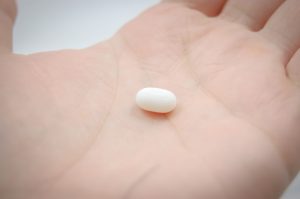Fenbendazole side effects appear to be generally mild in both humans and animals. Originally developed as a dewormer for animals, fenbendazole is now being researched as a potential cancer treatment for humans. Although research is currently limited, existing studies indicate that fenbendazole is well tolerated by humans and is actively used as part of the Joe Tippens Protocol.
What is Fenbendazole?

Fenbendazole is part of the benzimidazole class, which includes microtubule-destabilizing agents. Other benzimidazoles, such as albendazole, parbendazole, mebendazole, and flubendazole, have shown promising results in human treatments. While scientific studies on fenbendazole as a cancer treatment are limited, one study suggests that fenbendazole has “been safely utilized as an anti-parasitic for various animal species and could be repurposed for treating human malignancies.“
Another study highlights that “repurposing veterinary drugs with promising results for human use can significantly reduce the time and cost required to develop new drugs.”
Overall, findings suggest that fenbendazole induces the preferential elimination of cancer cells both in vitro and in vivo through mechanisms such as microtubule disruption, p53 stabilization, and interference with glucose metabolism.
Fenbendazole Side Effects in Humans
While little research has been done on the effects of fenbendazole and human consumption, studies have shown that the medication is typically tolerated well by humans, and thus far, has not reported any major side effects. While we can’t state that fenbendazole is safe for humans, the research appears promising.

According to a 2018 study, Fenbendazole (methyl N-(6-phenylsulfanyl-1H-benzimidazol-2-yl) carbamate) is a broad-spectrum benzimidazole anthelminthic approved for use in numerous animal species. Repurposing of veterinary drugs showing promising results for human use can result in considerable time and cost reduction required to develop new drugs. Fenbendazole is known to have a high safety margin and most species tolerate it very well. It has very low degree of toxicity and high degree of safety in experimental animals.
Another study also discussed the potential side effects of using fenbendazole in humans. “Based on limited human data it appears that doses up to 500 mg per person did not result in adverse effects,” the study states. “Moreover, single doses up to 2,000 mg per person were reported to cause no adverse effects.”
Fenbendazole Side Effects in Animals
Fenbendazole is safe to use in pets that are over six weeks in age. Although the medication is well tolerated by most animals, some potential mild side effects include:
- Loose stools or diarrhea
- Loss of appetite
- Salivation
- Vomiting
- Lethargy












